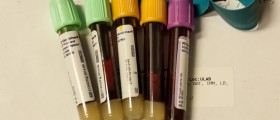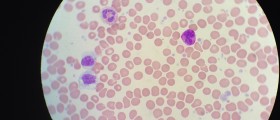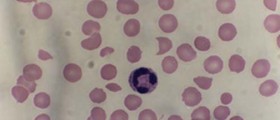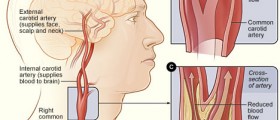
Von Willebrand's disease is the most frequently reported bleeding disorder. The condition is hereditary and associated with spontaneous epistaxis and gingival bleeding. People suffering from von Willebrand's disease do not have von Willebrand factor, one of the most important factors for the process of blood coagulation. Because of such lack patients are susceptible to bleeding, especially postpartum bleeding, menstruation bleeding while bleeding due to injury or surgery can be even severe.
Causes of Von Willebrand's Disease
As it has already been mentioned the condition develops as a result of deficiency of von Willebrand's blood clotting factor. This factor is essential for blood coagulation because it assists in platelets gathering and adhering to one another at the site of injury and because it is actually a carrier of blood clotting factor VIII, an integral component of blood clotting system. To sum up, in such patients there are no appropriate platelet activity and noticeably decreased levels of active Factor VIII. The condition affects both genders equally.
Von Willebrand's Disease Clinical Characteristics
Most patients experience mild bleeding and severe (life-threatening) hemorrhage is only reported after surgery or some injury. Because of that, physical activity is not restricted as it is in case of hemophilia.
Mild forms of von Willebrand's disease are characterized by nosebleeds, profuse menstruation and frequent hematomas.
Moderate von Willebrand's disease is connected with more complex bleeding issues that commonly occur after a tooth extraction or surgery. Such individuals require transfusions.
Finally, severe forms of the disease include bleeding into joints (hemarthrosis) and muscles.
Treatment for von Willebrand's Disease
Diagnosis of von Willebrand's disease is established after taking a medical history, thorough physical exam and specific blood tests which assess clotting time and the level of von Willebrand's factor as well as level of factor VIII.
Most patients used to be administered blood products. Such treatment option is known to carry a risk of introducing a hidden viral infection. Today, patients usually undergo treatment with intravenous injections of a synthetic hormone called desmopressin acetate. This drug is available in a form of nasal spray and it is supposed to be taken during menstruation, immediately after minor injuries and also if one undergoes minor dental interventions.
Prevention of von Willebrand's Disease
Von Willebrand's disease is inherited and this is the reason why it simply cannot be prevented. In case parents have a child suffering from this condition, they may have genetic counseling, especially if they plan to have more children.
People who are carriers of the defective gene may not develop the condition but are still capable of transferring the gene onto their offspring.

















Your thoughts on this
Loading...